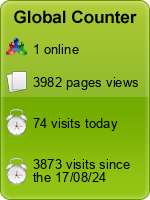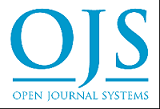Hubungan pemberian ASI eksklusif terhadap perkembangan bayi: A systematic literature review
DOI:
https://doi.org/10.33024/hjk.v18i6.369Keywords:
ASI Eksklusif, Perkembangan BayiAbstract
Background: The highest rate of exclusive breastfeeding occurs in newborn babies, reaching 67%. However, this figure decreases to 55% in babies aged two to three months, and falls again to 38% in babies aged four to five months. Exclusive breast milk is the practice of giving breast milk to babies alone, without additional food or other drinks, during the first six months of life. Apart from rapid physical growth, articulation and psychomotor development also occurs quickly. Breast milk is the main food/nutrient at this time. The first 4 months of a baby's life are the optimal way to provide nutrition to the baby.
Purpose: To examine the relationship between exclusive breastfeeding and infant development.
Method: Literature review using the PRISMA method. Data was obtained from ScienceDirect with the inclusion criteria of articles from the last 5 years, research article type, and English language.
Results: Exclusive breastfeeding (EBF) has a positive relationship with baby development. These findings show that babies who receive EBF have normal body weight, height according to growth standards, and achieve better motor skills.
Conclusion: This literature review provides evidence that babies who receive EBF have normal body weight, height according to growth standards, and achieve better motor achievements.
Keywords: Baby Development; Exclusive Breastfeeding.
Pendahuluan: Tingkat pemberian Air Susu Ibu (ASI) eksklusif paling tinggi terjadi pada bayi yang baru lahir, mencapai 67%. Namun, angka ini menurun menjadi 55% pada bayi usia dua hingga tiga bulan, dan kembali turun menjadi 38% pada bayi usia empat hingga lima bulan. ASI eksklusif adalah praktik pemberian ASI kepada bayi secara tunggal, tanpa tambahan makanan atau minuman lainnya selama enam bulan pertama kehidupan. Selain pertumbuhan fisik yang berlangsung pesat, kemajuan psikomotor juga terjadi dengan cepat. ASI merupakan makanan utama/zat gizi pada masa ini. 4 bulan pertama dalam kehidupan bayi adalah cara optimal dalam pemberian nutrisi kepada bayi.
Tujuan: Untuk mengkaji hubungan antara pemberian ASI eksklusif terhadap perkembangan bayi.
Metode: Kajian literatur dengan menggunakan metode PRISMA. Data diperoleh dari ScienceDirect dengan kriteria inklusi artikel 5 tahun terakhir, berjenis artikel penelitian, dan berbahasa Inggris.
Hasil: Pemberian ASI eksklusif (EBF) memiliki hubungan positif dengan perkembangan bayi. Temuan tersebut menunjukkan bahwa bayi yang mendapatkan EBF memiliki berat badan yang normal, tinggi badan sesuai standar pertumbuhan, dan mencapai pencapaian motorik yang lebih baik.
Simpulan: Bayi yang mendapatkan EBF memiliki berat badan yang normal, tinggi badan sesuai standar pertumbuhan, dan mencapai pencapaian motorik yang lebih baik.
Kata Kunci: ASI Eksklusif; Perkembangan Bayi.
References
Ahmed, S. O. M., Ashgar, R. I., Abdelgader, A. A. M., Hamid, H. I. A., Mathkor, D. M., Ali, M. A. A., & Hazazi, Z. H. A. (2023). Exclusive breastfeeding: Impact on infant health. Clinical Nutrition Open Science, 51, 44-51.
Ahmed, S. O. M., Hamid, H. I. A., Shanmugam, A. J., Tia, M. M. G., & Alnassry, S. M. A. (2023). Impact of exclusive breastfeeding on physical growth. Clinical Nutrition Open Science, 49, 101-106.
Ballesta-Castillejos, A., Gómez-Salgado, J., Rodríguez-Almagro, J., Ortiz-Esquinas, I., & Hernández-Martínez, A. (2020). Factors that influence mothers’ prenatal decision to breastfeed in Spain. International breastfeeding journal, 15, 1-9.
Cohen, S. S., Alexander, D. D., Krebs, N. F., Young, B. E., Cabana, M. D., Erdmann, P., & Saavedra, J. M. (2018). Factors associated with breastfeeding initiation and continuation: a meta-analysis. The Journal of pediatrics, 203, 190-196.
Diongue, O., Diouf, A., Ndour, P. S., Badiane, A., Thiam, M., Faye, M. H., & Dossou, N. I. (2023). Exclusive Breastfeeding Measured by Deuterium-Oxide Turnover Method is Associated with Motor Development in Rural Senegalese Infants. The Journal of Nutrition, 153(7), 1850-1857.
Fadilah, T. F., & Setiawati, D. (2021). Aspek Imunologi Air Susu Ibu Dan Covid-19. Jurnal Penelitian Dan Karya Ilmiah Lembaga Penelitian Universitas Trisakti, 44-67.
Fikawati, S., & Syafiq, A. (2015). Penyebab keberhASIlan dan kegagalan praktik pemberian ASI eksklusif. Kesmas, 4(3), 4.
Hendarto, A., & Pringgadini, K. (2018). Nilai nutrisi air susu ibu. bedah ASI kajian dari berbagai sudut pandang ilmiah ed (The nutritional value of mother's milk. ASI surgery studies from various scientific perspectives ed). Jakarta: Balai penerbit Fakultas Kedokteran Universitas Indonesia.
Ke, K., Chi, X., Lv, H., Zhao, J., Jiang, Y., Jiang, T., & Du, J. (2024). Association of Breastfeeding and Neonatal Jaundice With Infant Neurodevelopment. American Journal of Preventive Medicine, 66(4), 698-706.
Kementerian Kesehatan Republik Indonesia. (2018). Hasil Utama Riset Kesehata Dasar (RISKESDAS). Diakses dari: https://layanandata.kemkes.go.id/katalog-data/riskesdas/ketersediaan-data/riskesdas-2018.
Maria, M., Ina, A. A., & Windayani, W. (2020). Hubungan Pemberian ASI Eksklusif Dan Tidak ASI Eksklusif Dengan Perkembangan Motorik Halus Pada Bayi Usia 6 Bulan. Journal of Nursing and Public Health, 8(1), 58-65.
Novita, E., Murdiningsih, M., & Turiyani, T. (2022). Faktor-Faktor yang Mempengaruhi Pemberian ASI Ekslusif di Desa Lunggaian Kecamatan Lubuk Batang Kabupaten OKU Tahun 2021. Jurnal Ilmiah Universitas Batanghari Jambi, 22(1), 157-165.
Pertiwi, A. P., Mu’ti, A., & Buchori, M. (2023). Gambaran Pengetahuan Ibu tentang ASI Eksklusif dan Cara Pemberian ASI Eksklusif pada Bayi Usia 0-6 bulan di Puskesmas Segiri Samarinda. Jurnal Kedokteran Mulawarman, 9(3), 103-109.
Rajesh, V., Hegde, A., Shetty, V., Garg, M., Kamath, A., Ballal, M., & Kumar, V. (2023). Implications of exclusive breastfeeding and complementary feeding practices on gastrointestinal health and antibiotic exposure: A questionnaire-based assessment. Clinical Epidemiology and Global Health, 21, 101281.
Sabriana, R., Riyandani, R., Wahyuni, R., & Akib, A. (2022). Hubungan Pengetahuan dan Sikap Ibu Tentang Pemberian ASI Eksklusif. Jurnal Ilmiah Kesehatan Sandi Husada, 11(1), 201-207.
Setyaningsih, F. T. E. (2018). Hubungan Kepercayaan dan Tradisi Keluarga pada Ibu Menyusui dengan Pemberian ASI Eksklusif di Kelurahan Sidotopo, Semampir, Jawa Timur. Jurnal Biometrika dan Kependudukan, 7(2), 160-167.
Sirait, L. I. (2021). Air Susu Ibu (ASI) sebagai Pertahanan Tubuh (Imunitas) Bayi. Manajemen LaktASI BerbASIs Evidence Based Terkini, 69-85.
Triyani, S., Meilan, N., & Purbowati, N. (2014). Hubungan antara lama pemberian ASI eksklusif dengan perkembangan anak usia 12-36 bulan. Jurnal Ilmu dan Teknologi Kesehatan, 1(2), 113-119.
Widhiastuti, D. S., & Salim, L. A. (2022). Supporting factors for implementing early breastfeeding in children age 0-24 months (2017 idhs data analysis). Jurnal Biometrika dan Kependudukan, 11(1).
Wijaya, F. A. (2019). ASI Eksklusif: nutrisi ideal untuk bayi 0-6 bulan. Cermin Dunia Kedokteran, 46(4), 296-300.









